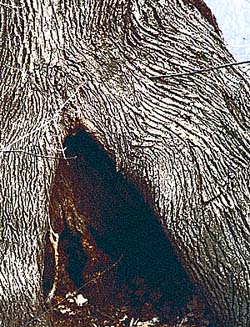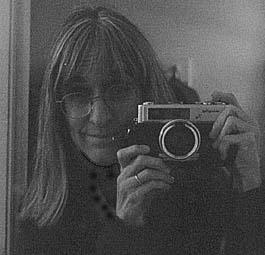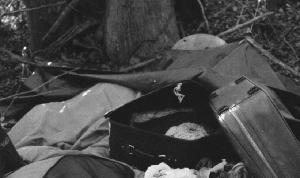Tell Me A Story
I decided to check it out.
So I arranged an ENT consultation. As I sat in the waiting room of the surgical specialties department of my health center, I noticed that across the hall, near the lab and pharmacy, there was a large posterboard sign depicting a lovely woman's face. It was advertising cosmetic surgery. It creeped me out.
After filling out a history questionnaire, I followed the nurse into the exam room. I noticed a business card tacked to the wall. The otolaryngologist I was about to see had a subspecialty in "facial plastic surgery." I was feeling more wrinkled and wattled by the minute. Was that my tinnitus, or was the word BOTOX issuing subliminally from the heating vents ?
Before long a pleasant young man breezed in, and introduced himself. The doctor. Everything about his body language said: hurry.
I began telling him what I thought he should know. The narrative. My story. He began to peer into my nose and ears even before I'd finished.
There were three or four things that HE wanted to know. Which ear. Was the hearing affected. Were there attendant neurological symptoms. Was I over-using caffeine or aspirin.
He seemed indifferent to the episodes of vertigo, deafness and tinnitus I'd had in 1985, the recurrance I'd had in 1992 which had prompted vestibular and audiometric tests and an MRI, and the C2 fracture I'd had three months prior.
He wanted to cut to the chase.
As a physician I knew that his questions were the important questions. The questions that would direct the work-up and lead to the diagnosis, or at least exclude the bad things that make ears ring. But as a patient I wanted to say, "Hey, buddy, shut up for a minute and let me tell my story my way."
I don't think he knew that his patient was herself a doctor.
"Drink less caffeine, schedule a hearing test and see me after that," he concluded cheerfully, and breezed out.
A large part of what doctors do is listen to patients' stories. We say "What brings you here today," or "Tell me about your illness," and step back to listen. When the patient stops talking, we ask for elaboration. "Tell me more about X." And when all the narrative details have been filled in, we ask the additional specific questions we need to ask. And conclude: "Is there anything else you feel is important for me to know ?"
Patients shape and color their stories like artists. Some open with a detailed background, like a novel's opening family history. Others go by strict chronology. How the symptom began. How it evolved. Others plunge in media res: this pain, right there, right now. Some emphasize character, reaction: I am so afraid. I have been so tired, angry, frustrated. Some narratives are fragmented, replete with non sequiturs, nearly avant garde. Others overflow with detail. Oatmeal for breakfast. What the mailman left. The dirty drapes. Some patients supply their own diagnoses. Some are showmen, comedians, actors with a well-rehearsed script. Others begrudge giving the least detail, just want a prescription to make it better. Others are simply inarticulate. The doctor faces a hermeneutic challenge. We must elicit, then interpret the words, and the gestures. And the silences.
Doctor: Have you had any chest pains ?
Patient: (long pause. looks away.) Not really.
That's when one begins, mentally, arranging a bed in the CCU.
The very act of telling one's story is therapeutic. As in catharsis. Confession. It is good to be heard. To unburden. To let it all out. To be heard, understood, accepted, validated. Connection is encouraging, energizing. We feel better afterwards. We are our bodies and our stories. We, like writers, appreciate being read with care and attention. To have our narratives admired and praised.
I did not like having the story of my tinnitus so ruthlessly edited.
I wanted to begin with the loud roaring, hissing typhoons of tinnitus I had in 1985 and go on to describe its subtle and ghostly return seven years later; I wanted to allude to the odd little munching sound I heard for a few weeks last summer and end with the tiny da dah da dahhh da da I hear now fluting in my ear when the room is silent. I tried to give him lush, descriptive prose.
He wanted dry, minimalist reportage.

















